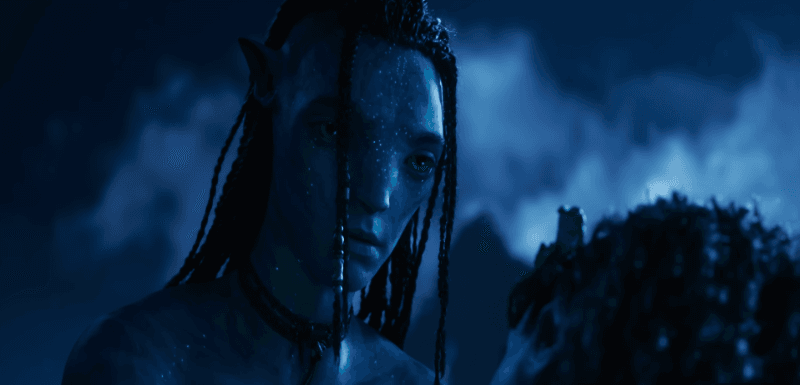Ejen Ali,Malaysia's beloved 12-year-old super spy is well known by its TV animation series and its first animated feature film broke Malaysian’s box office records and ranked the highest-grossing local animated film ever in Malaysia.
Ejen Ali: The Movie beats stiff competition from the popular animated film Frozen 2, to set a new opening weekend box office record, which marked a landmark achievement for the Malaysian animated film industry.

Fox Renderfarm, your TPN-Accredited cloud render farm, was pleased to have an interview with Usamah Zaid Yasin, the co-founder and CEO of WAU Animation. Usamah is also the scriptwriter and Director of Ejen Ali Series and The Movie sharing his story with the production of this popular animated film.
In 2013, Usamah Zaid founded WAU Animation, the Malaysian CG animation studio focuses on producing and developing original animated programs, such as Ejen Ali, which debuted in 2016 and has been broadcast in over 50 countries.


Prior to starting WAU Animation, Usamah Zaid was also a founding member of Les’ Copaque Productions in 2005. The company behind the successful Upin & Ipin series and the movies.

For Usamah Zaid, animation is a labor of love. “It is not going to get you rich or famous, so what keeps you going is your passion for creating characters and showing your artwork to the world, then seeing the reaction of your audience,” he said.

Here’s the interview between Usamah Zaid Yasin and Fox Renderfarm. Let’s have a look at the stories behind the local animated film with such a huge success.
Or you can watch the following video about the interview:
Fox Renderfarm: Hi, would you please give a brief introduction about yourself?
Usamah Zaid: I’ll introduce my name - Usamah Zaid, a co-founder of the studio with another of my other friends, WAU Animation was founded in 2013. We set up the studio as a CG animation 3D house. Our dream is, of course, to create content IP, to tell our own stories.

Fox Renderfarm: Which part of Ejen Ali: The Movie do you like the most, visually and storytelling respectively?
Usamah Zaid: The one scene that I felt most for; while watching, and trying to be in the seat of the audience, I would say Scene 27! It was amazing because the team really exceeded my expectations. In delivering that scene, when I wrote it, I didn’t imagine it would be that good. And I think it’s a risky thing, sometimes in storytelling and in directing, we try to turn to something that is not common then. In terms of editing, in terms of the visual cue, a lot of things felt risky. We didn’t know whether these things would work, but I think it paid off. When I wrote it, I knew it would take some convincing to be able to deliver the scene, and the team did it very well. Once they felt what the direction was going to be, the things that they came up with were really impressive. And I think it worked well, judging from the feedback we got from the audience. I think we manage to deliver that scene successfully.

Scene 27 in Ejen Ali: The Movie


Source: Wau Animation
Fox Renderfarm: Did you meet any difficulties when making the film? And how did you solve it?
Usamah Zaid: There are so many things that were problematic, so many challenges. Like duration, I think in any production, duration is a huge factor. And in our case, the duration of the movie, so we needed to keep it to that duration that we committed to. One (reason) is that I wanted to make sure it’s not too long so that children aren’t restless in the cinema, I wanted to make sure it’s not too long so we can get a good amount of repeat in one day at the cinema. Because if it’s too long, then you might have less screening. We also needed to make sure we don't exceed too much, because every single minute added to the duration would mean having more time to the production and money. One year and eight months, while it sounds like a lot, relatively if you compare with a global production, a 3D computer animation pipeline or even hand-drawn animation pipeline, one year and six months is actually very tight. We literally had to work our butt off in order to make sure we were able to complete the movie.



Source: Wau Animation
As an indie-studio, while we do secure investments and grants, cash-flow is always something that we struggled with. So we had to make sure we do enough servicing stuff to ensure that we get enough money and infrastructure - hardware and software. I think 70% of our time was to plan our spending, throughout the first 3 quarters of the production, we were actually struggling with the lack of hardware capacity, (which) means that we needed better machines. But we didn’t have the money to spend for it. Towards the end of the last 3, 4 months, when we were really able to move at our best capacity.
Ejen Ali was estimated to cost around MYR5.6 Million when we budgeted the movie back in 2017, to date the actual movie cost a whopping of MYR7.4 Million, where WAU had to bare 62% of the total cost on our own through grant and personal investment, whereby our partner only had to spend 38% of the total cost. So can you imagine the financial turmoil that we were continuously facing…
 |
 |
 |
 |
I think creatively in terms of story development, character development, there were a lot of things that we wanted to do. It was a lot of learning process as well. Because this is literally WAU’s first feature-length film, we thought we knew enough before going in. But while we were in the production, there were lots of things that we needed to figure out. It took a long time to develop the story and the characters. Believe it or not, the script was only finalized about 3 months before the production ends. But we started the production much earlier. While we were in production, we were still figuring out the story, and making tweaks and fixes. So you can imagine the amount of stuff that did not make it, in the final film. Those were some of the things that we have to deal with. There was a lot of learning. It's an opportunity, if you approach it with that mindset - you don't want the opportunity to pass. So whatever it takes, we have to figure it out.



Source: Wau Animation
Fox Renderfarm: What do you think of the distribution of international films like Ne Zha in the western world? Is there any inspiration for you to think of distributing Ejen Ali in the western world?
Usamah Zaid: I think it’s great. It’s amazing to see movies from our side of the world being able to make such a breakthrough. Because in Hollywood, the western film industry, they are looking for fresh ideas. Sometimes they even tap in our side of the content, and sometimes not doing it properly, like changing the elements, offending the people along the way. It’s an amazing breakthrough. It has always been a part of the dream, not just for the company, also for the local animation industry to be able to make that kind of breakthrough.
In terms of distribution, because we work with Prime Works, and they are handling our distribution, they are in talks with so many other countries to push the movie. I think I can’t announce yet. The series is in over 50 countries, hopefully, we can get half the amount of countries to screen the movie. It would be amazing.


Fox Renderfarm: Could you give a brief introduction to your new project or the next step of Ejen Ali?
Usamah Zaid: The demand is there. I mean in our initial plan when we first approached our broadcast partner, working on the partnership, there has always been a continuous plan - Ejen Ali is meant to go for another 2 or 3 seasons, and at least another movie. But with such amazing feedback, I think we have to look into speeding up stuff. A movie is a big event, I don’t think we can wait more than 3 or 4 years before making another movie. In the immediate future, we have to look into making another season and another movie. And as the studio of WAU, Ejen Ali is not the only project/ IP content that we want to create. We have a few, and definitely one in particular that I am very excited about to announce soon!
 |
 |
Ejen Ali Season 1&2
Fox Renderfarm: Do you have any plans to collaborate with China?
Usamah Zaid: We've actually spoken to a couple of studios, toy-makers from China. And they have shown really strong interest. But I think due to the business of movie production, we sort of took a step back from the conversation. China is undoubtedly a huge market. I think it would be able to get into China and tap into the resources that we can have access to. Definitely, if you ask me if I want to work with China.
Fox Renderfarm: Malaysia’s animation reaches a new height this year, in your opinion, what contributes to the success? And what do you think of the future development of Malaysia’s animation?
Usamah Zaid: Having known the three studios, and their animation films that dominated the film industry this year, I think it’s the mindset. Since the beginning, when I was in Les’ Copaque Production as well. It was the mindset that drives the desire to deliver the product, regardless of what you can get your hands on. I think a lot of studios probably have a long term plan, but of course, the challenges of not having enough people, not having enough money, and just to get a spark of opportunity is not easy. With us, the mindset of seizing the opportunities has always been there. We don’t wait until everything is in place.
If we are just talking (about) this year, 3 movies are the highlights. Over the last 10 years, the growth of the industry has been immense, you have to give credits to how the government has put focus into it, especially MDEC. And all the companies, agencies and service providers that came into; in a way, that complete an ecosystem. And the IHL (Institute of Higher Learning) providing and creating more programs, making more talents available. As a nation, once we set our eyes on the animation industry, I think a lot of things came together. And as an industry, the growth has been amazing.
I literally grew up through this time when animation was not seen as something that’s possible, something that’s credible. My father was worried when I wanted to go into animation. But now I think it has been proven, just a couple of weeks ago. I have a 7-year-old child who loves painting. He does amazing illustration. He came to the studio with his grandmother, he wanted to learn about animation. It’s the kind of story you hear outside of Malaysia, kids wanting to go into the animation industry, and parents finally supporting the idea - “oh, my kid wants to do animation” and I think that’s amazing.
Fox Renderfarm: What do you think of Fox Renderfarm cloud rendering service?
Usamah Zaid: When starting the series, we actually tried to set up our own internal facility, like a small render farm. But I felt the impact wasn’t that huge. Because to make a difference, we actually need a lot more nodes in order to be able to really boost the production. We were moving at an OK pace as long as we were able to catch up with the production timeline. But in production, that almost never happened. Something would always go wrong, and you probably had to push back the time. We thought that and tried to scale up already, even to maintain the facility, (but) the licenses, it was a lot of investment. That was when we discovered Robust (Fox Renderfarm’s agent in Malaysia). When we first tried it out, the speed was just amazing. We started working with Robust during our second season, I think; halfway to the second season. And since then, we knew for certain, we want to be working with Robust for the movie. So far, no complaint, it has been amazing! The system that we get has been prompt. I think it was a good move and it was a very good decision for us to work with Robust. And I can’t imagine delivering the movie without working with Robust.


Source: Wau Animation
Fox Renderfarm: Any other things you want to share with the CG enthusiasts?
Usamah Zaid: Aside from the general audience feedback, we’ve received some good feedback from the fellow industry peers as well. Getting such feedback from your peers really makes us feel very validated, because it’s not easy for people from other studios to give compliments to another, especially industry players usually have much higher expectations and much higher taste in the works. Because other people, the normal audience, are not as picky in terms of the technical output. They would feel that it looks good, and they suddenly see that we are as good as Pixar, but we know that we have a long way to go. But to be validated, by CG enthusiasts I think, it’s been amazing. We still could use more viewers. (So I hope anyone who haven’t seen the movie, it’s currently available on Astro First) And people say that this movie is historical in the sense of Malaysian animation development. So, I hope anyone who haven’t seen it, please go and see it.














